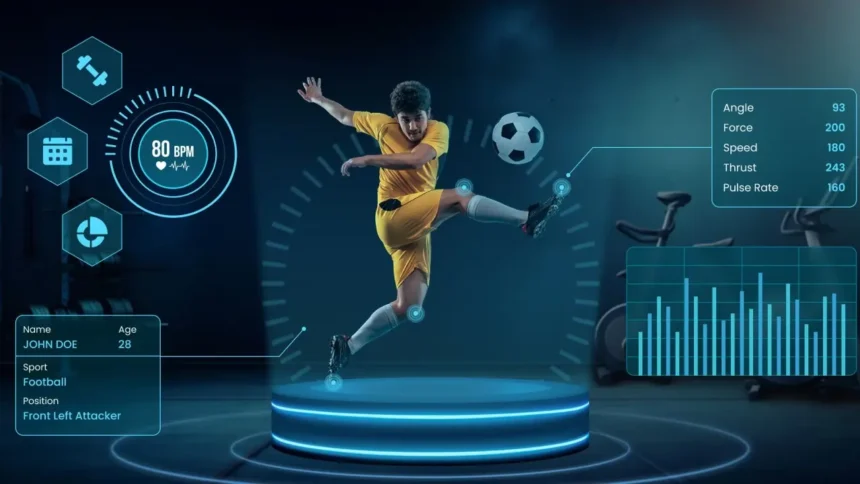Football has always been about heart, hustle, and human intuition. But in 2024, another player is changing the rules – Artificial Intelligence. And Gen Z, ever plugged into the latest tech trends, is at the forefront of embracing a new era of smart football.
From predictive analytics to wearable performance trackers and even AI-generated tactics, the beautiful game is getting a digital facelift. Clubs, coaches, and content creators are now leaning on big data and artificial intelligence to optimize team performance, enhance fan engagement, and give supporters, especially younger ones. unprecedented access to the inner workings of the sport.
Take Manchester City, for example. The club uses AI-powered data analytics to monitor everything from player fatigue to decision-making on the pitch. With thousands of data points collected per second via GPS-enabled vests, clubs can predict injuries, customize training, and even decide substitution strategies in real time.
“Football today isn’t just about flair. It’s about data-informed brilliance,” says Dr. Seyi Ogunleye, a sports data scientist based in Lagos. “Coaches use machine learning to simulate match outcomes or develop strategies against specific opponents. The future of coaching is hybrid — part instinct, part algorithm.”
But AI’s influence doesn’t end at the training ground. On the fan side, Gen Z audiences are interacting with football in ways older generations never imagined. Fantasy football leagues now integrate real-time data to update player stats. AI-generated highlight reels make it easier for casual fans to catch up on matches. And TikTok creators are using predictive AI tools to simulate match outcomes, often with hilarious or surprisingly accurate results.
The rise of AI-driven commentary and match predictions has also led to a new subculture of football content on social media. Apps like Socios, which allow fans to influence minor club decisions through blockchain-based votes, are giving Gen Z a sense of ownership. Meanwhile, platforms like YouTube Shorts and Instagram Reels are flooded with AI-generated player comparisons, tactical breakdowns, and personalized highlight reels.
Nigeria is not left out of this evolution. Local clubs like Enyimba FC and Remo Stars are beginning to partner with tech startups to explore performance data and social media analytics to boost fan engagement. Startups such as Grit Sports Africa are developing AI-powered scouting tools to identify hidden talent in rural areas using video analysis and machine learning algorithms.
For Gen Z, this is more than just football, it’s a digital lifestyle. The integration of AI with sport offers endless content, community, and interaction. During the last AFCON tournament, an AI tool developed by a Nigerian startup was used to predict match results and suggest tactical changes based on historical match data. Its predictions went viral on X (formerly Twitter), further cementing Gen Z’s fascination with algorithmic football.
“There’s a certain magic when tech meets sport,” says 21-year-old content creator Ifeanyi Adebayo. “You don’t just watch a match, you experience it on multiple platforms, with insights, memes, and even your own simulations.”
However, some traditionalists argue that AI risks taking the soul out of the game. The fear is that the obsession with data could replace the human instinct and unpredictability that make football exciting. But for a generation raised on smartphones, streaming, and personalization, that concern feels outdated.
AI isn’t replacing football; it’s enhancing it, making it more accessible, more strategic, and more fun. From virtual stadiums to smart scouting, Gen Z is not just watching the game; they’re reprogramming it.
So, whether you’re a die-hard Chelsea fan or a weekend-only Premier League observer, one thing is clear: the next chapter of football will be written by code, and cheered on by a generation that speaks the language of tech fluently.







